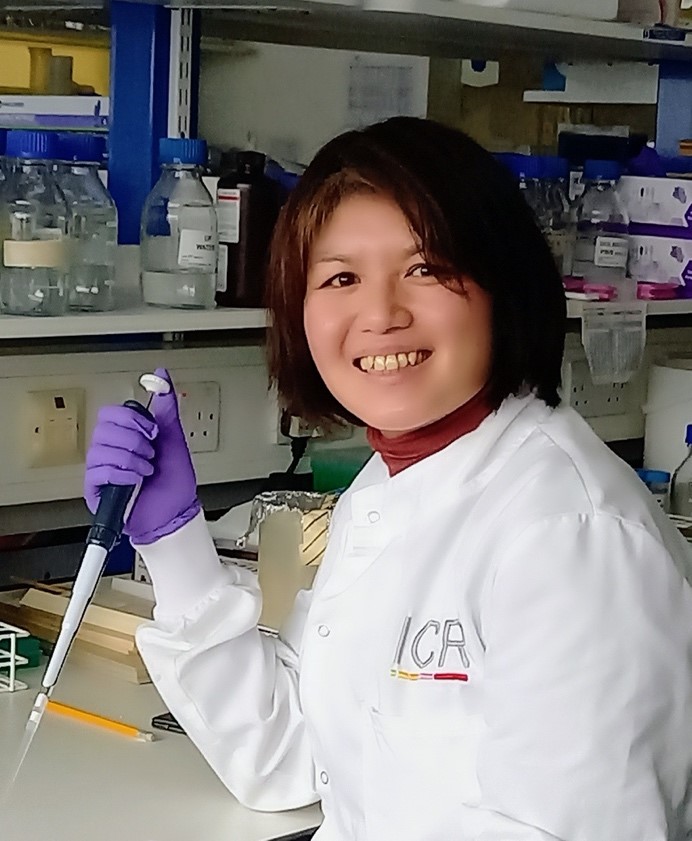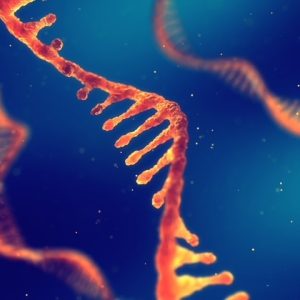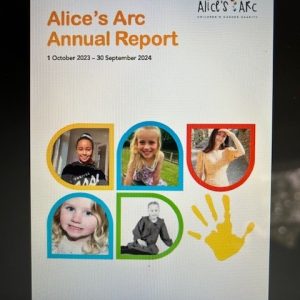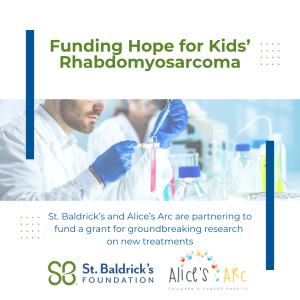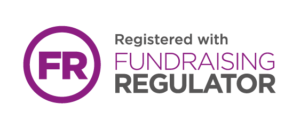This is the first in a series of meet the Alice’s Arc researchers across our rhabdomyosarcoma projects. Dr Stella Man is a Higher Scientific Officer at the Institute of Cancer Research (ICR). She is part of the Sarcoma Molecular Pathology Team in the Division of Molecular Pathology. Her latest project involves single cell sequencing analysis of various rhabdomyosarcomas, which is being funded by Alice’s Arc. Click here to learn more.
Talk us through your typical day
When I arrive at the lab in the morning, I follow my pre-prepared list of things to do. I usually start with tissue culture work where I am taking care of cells or performing various experiments. Aside from lab work where I am on my feet, sometimes in different buildings using different equipment, I also spend quite a lot of time on my laptop. I might be in zoom meetings, listening to talks, preparing slides for a presentation or writing grant proposals. Towards the end of the day, I would normally set aside time to schedule and adjust plans for experiments/tasks for the next day to ensure that they are prioritised according to forthcoming deadlines. No two days are ever the same.
How does your work contribute to the ICR’s mission to make the discoveries that defeat cancer?
My research is focused on finding new solutions and strategies to treat paediatric soft tissue sarcomas. As part of that, I develop models that can be used for drug testing or for improving our understanding of these cancers using the latest cutting-edge spatial transcriptomics technology. My work aims to ensure that we continue to push new scientific boundaries to improve patient outcomes.
What big projects have you been working on?
I have been developing a test model for a rare form of sarcoma called Desmoplastic Small Round Cell Tumours that affect young patients. The test model consists of cancer cells and non-cancerous cells from patients and are grown in the lab to mimic the biology of this aggressive tumour type. By incorporating at least two different cell types into three dimensional structures (mini tumour spheres), we have a new model to test drug treatments that more accurately reflect tumour response in patients. Additionally, the model can help with improving our understanding of how different cell types within the tumour microenvironment interact with each other and drive tumour progression. Such information will be important for identifying new targeted treatments in the clinic.
Your work in a tweet
3D co-culture models for paediatric sarcomas.
What are you most proud of?
Being able to communicate my work within the ICR and with the public. Last year, my submission for the ICR Science Imaging Competition was shortlisted, shared across various social media platforms and published in New Scientist magazine. It was nice to be able to show a wider audience how cancer research can be so complex and yet sometimes so unexpectedly striking!
Who do you collaborate with at the ICR and elsewhere?
I have just begun work on a project with Dr Karin Straathof at the UCL Great Ormond Street Institute of Child Health to perform work involving single cell sequencing analysis of various rhabdomyosarcomas. We will compare the extent of similarities in the gene expression profiles (transcriptomes) and the degree of heterogeneity between rhabdomyosarcoma models with patient tumours. The data will enable us to determine how changes in the transcriptomes could drive tumour progression and influence resistance to standard treatment. This is an exciting project because it aims to provide pilot evidence for using RMS patients’ transcriptome information to guide clinical treatment strategies. This work is being generously funded by Alice’s Arc. I am extremely grateful to have their support.
What’s your favourite part of your job?
Being able to develop new research projects based on ideas that haven’t been tried or tested before. Brainstorming research ideas with colleagues and turning those ideas into reality is especially motivating
What do you do to wind down?
I regularly join a Pilates class with a small group of friends. It is great that we can see each other on a weekly basis. The sessions really help me relax and calm down from my job as well a chance to work on my core muscles!
What are people least likely to know about you?
I enjoy World Cinema and watching anything with subtitles. I like to learn about different cultures and languages. I also enjoy karaoke singing with friends (only with close friends!)
